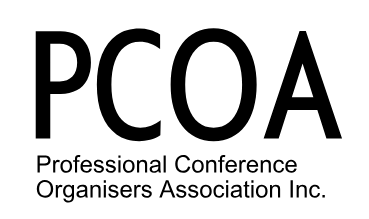Case Study:
13th SCAR (International Council for Science - Scientific Committee of Antarctic Research) Biology Symposium 2023, Christchurch, New Zealand

Convening scientists as the new explorers
The 13th SCAR Biology Symposium in Ōtautahi Christchurch demonstrated the positive legacy business events can foster in a rapidly changing world.
Over 300 of the world’s leading researchers from 32 Antarctic programmes met face-to-face for the first time in three years at Te Pae Christchurch Convention Centre to focus on the issues facing Antarctic and Southern Ocean biology and ecology.
Christchurch: an ideal base
Four days of invited keynotes, plenaries, and concurrent sessions were punctuated with a mid-week excursion break giving attendees the chance to enjoy some spectacular parts of New Zealand’s South Island.
SCAR 2023 Convenor, Prof. S. Craig Cary from the School of Science at the University of Waikato said a new standard was set by hosting the SCAR Symposium in Christchurch.
“While world-class science was expected, given the participation of leading international Antarctic scientists eager to connect post-COVID, the entire Christchurch experience including the remarkable Te Pae Christchurch venue exceeded our expectations on all fronts.”
Creating history
Christchurch has a long history as New Zealand’s Antarctic gateway city, and is one of only five in the world. Once a base for the original polar explorers, it is now host to numerous National Antarctic Programs.
After attending the event, ChristchurchNZ Business Events Advocate, and Antarctic and natural environment champion, Graeme Ayres said, “In Christchurch we were convening scientists as the new explorers in a world facing and adapting to climate and geopolitical change. This in itself made it an historic event.”
Tangible legacies
The SCAR meeting provided a legacy of tangible outcomes, shifting the dial on climate change and leading to positive social and environmental impacts.
Ground-breaking findings presented at the symposium pointed to concerning, rapid transformations within Antarctic species, populations, and ecosystems, prompting leading scientists at SCAR 2023 to issue an historic statement – The Christchurch Communique: Urging Immediate Climate Action – which attracted significant international media attention.
The meeting served to boost international relations, educate the community, and create strong research and business connections for the city. Young scientists particularly benefited. Fifty per cent of delegates were early-career scientists, and the programme was designed to create opportunities for them to participate.
Before and during the event, organisers worked with Christchurch’s Antarctic Office to strategically maximise the potential for in-person gatherings among Antarctic stakeholders, the Christchurch Antarctic Network of businesses and National Antarctic Programs, fostering lasting relationships, promoting collaboration, and cultivating a collective commitment to preserving the Antarctic environment.
World first
SCAR’s focus on impactful science looked at Antarctica and the Southern Ocean in global systems, recognising and reflecting the value of Māori mātauranga (knowledge).
For the first time, a half-day was dedicated to showcasing Māori exploration and research in the Deep South, including the official launch of the first indigenous-led Antarctic research programme in the world. The introduction by local leaders and experts created a deep impression with the international audience, creating lasting memories for all delegates.
https://www.christchurchnz.com/meet/business-events-christchurch

